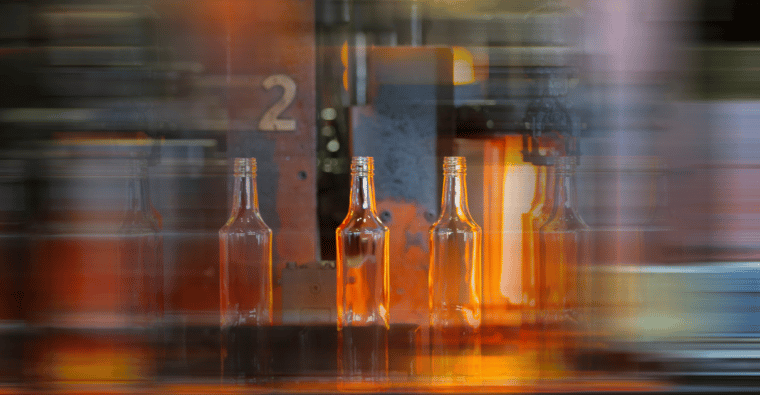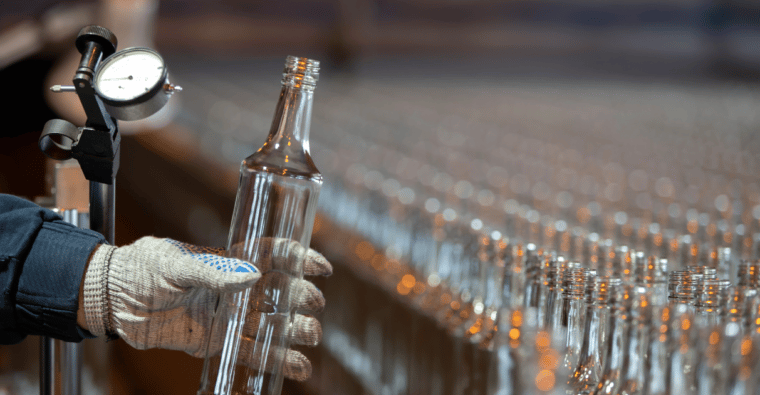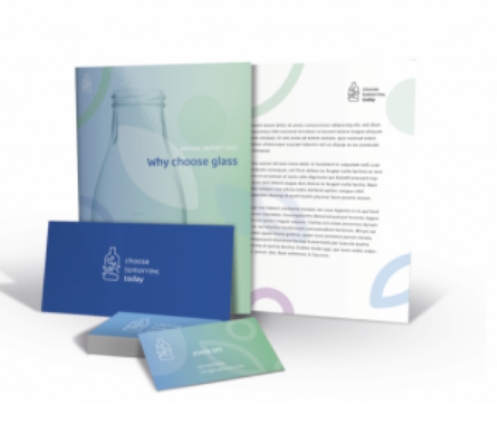The ‘next normal’: Ardagh Group and O-I Glass invest in low-carbon footprint furnaces with innovative glassmaking technology
The glass industry is forging ahead with its vision for the Furnaces for the Future, backed by new decarbonisation initiatives that not only speak to a relentless commitment to climate-neutral glass packaging, but also set a ‘next normal’ in glass manufacturing.

For Ardagh Group and O-I Glass, sustainability is not just a buzzword. These glass industry giants are putting the foundations in place to meet 2050 decarbonisation targets set out in the European Climate Law, by expanding their sustainable and innovative solutions portfolio to better serve brands and retailers. They’re two of the latest examples of how glass manufacturing companies are stepping up their efforts to reduce carbon emissions, by investing in the construction of state-of-the-art low-carbon furnaces and cutting-edge technologies – bringing us closer to a world where a low-carbon economy is the norm.
We all rely on glass packaging every day to package, transport and store our favourite products. Yet there’s no denying that today, 80% of emissions in the glass industry come from the combustion of natural gases used to melt glass in a furnace, with the other 20% from the virgin raw materials used to make glass. New and ongoing initiatives are showing that achieving significant reductions in CO2 emissions generated by glass production is in sight.
Ardagh’s new 440tpd furnace in Poland will have lower energy consumption and lower emission of greenhouse gases
Ardagh Group has begun the construction of a new furnace with innovative glassmaking technology in Wyszków, Poland. Upon completion, the new plant is expected to produce 400 tonnes of glass per day to three forehearth. As one of the UK’s biggest glass manufacturers and supplier to many of the world’s leading food and drinks companies, Ardagh has long been a frontrunner in energy efficiency investments and resource management. The new expansion project is carried out by furnace experts Forglass and includes full automation and safety systems.
The sustainability benefits are clear – with lower energy consumption and lower emission of greenhouse gases, the innovative technology ensures that the new furnace will be one of the most environmentally friendly to date. Find out more about Ardagh’s sustainability efforts on their website.
O-I Glass invests millions in new furnace technology in France, increasing production capacity and lowering CO2 emissions
Equally, in France, O-I Glass – one of the world’s leading container glass products, with operations in 10 European countries – invested 50 million euros in their plant in Vayres for a new Gas Oxy Advanced Technology furnace (GOAT). Their new GOAT furnace is equipped with an energy recovery system for heating raw materials, supplied by a new on-site oxygen production unit. Using oxygen as the main energy source, these investments in the sustainable performance of the furnace are set to reduce CO2 emissions by 20% and nitrogen oxides (NOx) emissions by 60%.
Randy Burns, Chief Sustainability Officer for O-I explained:
“The Vayres investment is emblematic of O-I’s holistic approach to address sustainability by increasing energy efficiency, upgrading furnaces, creating more resilient supply chains, and forging strategic partnerships. Our sustainable commitment will help move us toward a truly circular economy for packaging that leverages the infinite recyclability of glass.”

The glass industry aims for a major green industrial transition by 2050
With 2022 being the International Year of Glass, it’s no surprise that the main theme of the year’s Furnace Solutions Conference was about the glass industry’s efforts to decarbonise and find solutions to climate change. The glass industry’s decarbonisation objective is clear: to continue investing in multiple R&D innovation paths and transition to a resource-efficient and low-carbon European economy. Ardagh and O-I Glass are just two examples of how glass industry remains strongly committed to long-term industrial transformation, with scores of other investments in new sustainable technologies taking place, from Italy’s hydrogen-powered Divina pilot to Gerresheimer’s hybrid furnace in Germany.
The call to transform the glass industry is ambitious, with many “transformative” technologies needed to reduce carbon emissions during production. But the industry is on the right track to ensure the long-term sustainability of glass production, along with the entire glass packaging value chain. By addressing our biggest challenge (CO2), the industry can offer a future-proof packaging that is healthy, circular, and climate-neutral – so that glass can continue to be the packaging material of choice for brands and consumers alike, for generations to come.
***
Ardagh Group produces glass packaging in all shapes and sizes for the world’s leading brands. As well as offering a choice of 17 colours, Ardagh has the resources and expertise to create distinctive and innovative glass packaging that can set a brand apart. Glass protects its contents perfectly, is eye-catching, has a strong shelf presence and expresses a brand’s personality.
O-I Glass, Inc. is proud to be one of the leading producers of glass bottles and jars around the globe. Glass is not only beautiful, it’s also pure and completely recyclable, making it the most sustainable rigid packaging material. Headquartered in Perrysburg, Ohio (USA), O-I is the preferred partner for many of the world’s leading food and beverage brands. O-I innovates in line with customers’ needs to create iconic packaging that builds brands around the world. Led by a diverse team of more than 25,000 people across 72 plants in 20 countries, O-I achieved revenues of $6.1 billion in 2020. Learn more: o-i.com / Facebook / Twitter / Instagram / LinkedIn


